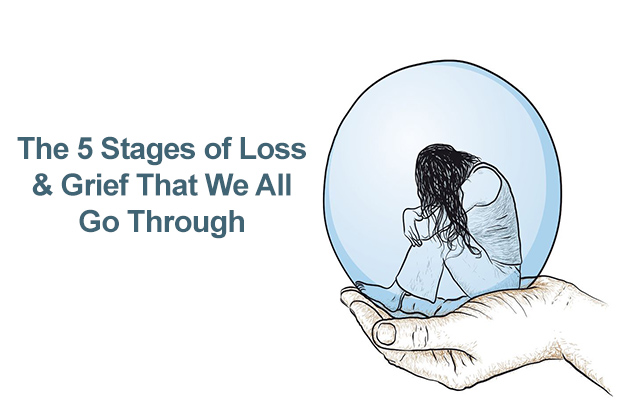
When we find ourselves experiencing traumatic hardship, we tend to mourn, and we do this in an oddly specific way. Mourning happens as a response to a variety of different things, including to one’s own terminal illness, to the loss of a close relationship, or to the death of a loved one, be it human or animal.
Everyone will experience these five stages in different ways and in different orders, so if you are grieving, look at the stages as guides to understanding where you are in the grieving process.
It is also important to remember not to judge others on how they may be grieving. Some outwardly express their grief while others like to grieve internally, with minimal expression.
Here are the five stages of grief and loss:
Denial & Isolation
One of our most primal instincts upon learning of the death of a loved one or a terminal illness diagnosis is to deny that it’s happening. The overwhelming amount of emotion we experience triggers a defense mechanism that dulls the immediate pain by vehemently denying anything is actually happen.
Anger
As we eventually work past our denial, the pain that we had been avoiding is in full effect, causing us intense anger as we divert emotion from our vulnerable selves and turn it on the things and people around us.
We also tend to direct our anger toward the dying or deceased out of resentment that this person is leaving us and causing us this pain, even though we are fully aware they are not to blame.
Bargaining
To stave off the pangs of helplessness and vulnerability, we turn toward regaining the control that we have lost:
- If only we had sought medical attention sooner…
- If only we got a second opinion from another doctor…
- If only we had tried to be a better person toward them…
Trying to cut deals with a higher power in hopes of bringing back the one you’ve lost is yet another defense mechanism that our minds use to reduce pain and deflect intense emotions.
Depression
Mourning is largely associated with two separate types of depression. The first is mostly a reaction to the immediate repercussions regarding the loss; things like how much the burial and funeral services are going to cost or how you’ve been neglecting others in your life because of your grief.
The second type of depression is seen as more subtle. It happens as we prepare to fully let go of the person we loved, wishing them all the best as they move forward. During this phase, having someone around to just give you a hug is always nice.
Acceptance
Acceptance is the last stage of grief and loss, but it is not one that everyone always reaches. Sudden and traumatic experiences can leave a lasting wound on us, one that some people never recover from, as they are continuously blinded by anger and denial.
Do not view making peace with the situation as weakness, and do not deny yourself the opportunity to find that peace. You are not heroic or brave by holding onto someone who is not there.
http://psychcentral.com/lib/the-5-stages-of-loss-and-grief/

